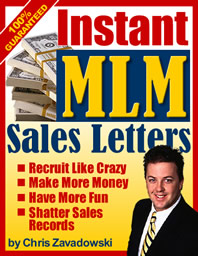 Richard Branson, the already successful Branson, has had to close down businesses that were sucking money down drains with no end in sight. Arguably, he made bad decisions and bad investments. If he lives long enough and stays active, he’ll do so again. Long after the big crash that almost did him in, the freshly, super-successful Trump has been involved with failed real estate projects in Vegas and in Mexico, been sued or threatened suit by investors, and more recently his licensing and speaking deal with the company using the Trump University brand has bitten him in the ass. Presuming another decade of active entrepreneurialism, these won’t be the last sour real estate projects or the last ass bite.
Richard Branson, the already successful Branson, has had to close down businesses that were sucking money down drains with no end in sight. Arguably, he made bad decisions and bad investments. If he lives long enough and stays active, he’ll do so again. Long after the big crash that almost did him in, the freshly, super-successful Trump has been involved with failed real estate projects in Vegas and in Mexico, been sued or threatened suit by investors, and more recently his licensing and speaking deal with the company using the Trump University brand has bitten him in the ass. Presuming another decade of active entrepreneurialism, these won’t be the last sour real estate projects or the last ass bite.
Disney has, recently, bought companies it later, quietly killed. Put out John Carter From Mars and The Lone Ranger. Completely screwed up its California Adventure theme park and has spent hundreds of millions of dollars re-tooling it. Examine almost any shiny success, and on its flip side, you’ll find grimy failure. How do you feel about that fact?
Zig told the story of the cat hat stepped on the hot burner, then not only wouldn’t ever jump on the stove again, but wouldn’t even come in the kitchen. This is how most people feel about and react to failure, particularly embarrassing and humiliating or expensive failure. If they experience it once, they never want to go in the kitchen again. One punch in the nose is all it takes. The truth of success scares the shinola out of most people.
There are also, always, the exceptionally successful individuals who are, in various ways, failures personally. Houdini failed at almost nothing, except control of his own ego, which very directly caused his premature and unnecessary death. There’s a T-shirt being sold, with picture of Bill Clinton, that reads: “Remember when YOUR biggest problem in Washington DC was MY stain on a blue dress?” It’s funny, but it also speaks sadly of the stain on a smart and talented man.
My friend Gene Landrum has written intelligently and eloquently about the dysfunction of the extraordinary achiever, and if you haven’t read any of his works, start with Profiles of Greatness. Most exceptionally successful people are not even close to “superior” – in fact, most are horribly flawed, but manage to rise above their own foibles.
My own history includes a private graveyard of business failures and disappointing projects, most given the swift sword, a few dying slowly and agonizingly; financial embarrassments; and some number of people with permanent negative opinions about me. I am not universally beloved nor consistently and certainly successful.
To hit some business highlights, going backwards, there has been mail-order ice cream (which sounds funnier than it is), a high-priced be-an-expert academy that failed to launch, a comprehensive how-to course for inventors no inventor wanted, a retail store: the Self-Improvement Center ahead of its time. Just these added together, a million bucks, give or take, down the drain, a bit noisily.
There was, way back when, both a corporate Chapter 11 turned 13 and a personal bankruptcy. There are four business experiments underway now and I’m confident at least some will become tax losses buried in the back yard. Of more micro nature, were I to try and list and briefly describe all the mis-steps, mistakes, misadventures and misfortunes, it’d be best to do it like an old-fashioned encyclopedia, with a thick volume for each letter of the alphabet, the entire set consuming several shelves. And I’m not done making messes. I say: success is cooked up in a messy kitchen.
If your success game plan features being right 100% of the time and never making mistakes or your fragile ego demands never getting egg on its face, you’ll be playing the game for only a short time, timidly, and without distinction, or you’ll rise high and fast only to fall just as fast and crash as hard as can be. The ironic fact is, the game is won by losers. If you aren’t floundering or outright failing at something, you probably aren’t doing much of anything. When you look in the mirror, if you don’t see a winner and a loser, the guy or gal you do see isn’t playing the big game.
You have heard the cliché: success breeds success. It does. But what you don’t often hear is the other, equal truth, that failure is the other parent of almost all success. The goal of success can never be to avoid failure, but to manage it, minimize its harm, extract its lessons, leverage it in every way possible, rise above it, and know that it will be forgotten and made irrelevant in time.
Everybody knows that Babe Ruth struck out more than he hit home runs. Most superstar athletes perform similarly. Michael Jordan missed more than 9,000 shots in his pro career. 26 times, he had the game winning shot in his hands, missed, lost. He said, “I have failed over and over and over again in my life – and that is why I succeed.” By his own words, he acknowledges seeing two faces in the mirror.

 Click Here to Comment
Click Here to Comment Chris here with a quick update from beautiful Walt Disney World…
Chris here with a quick update from beautiful Walt Disney World…




Recent Comments